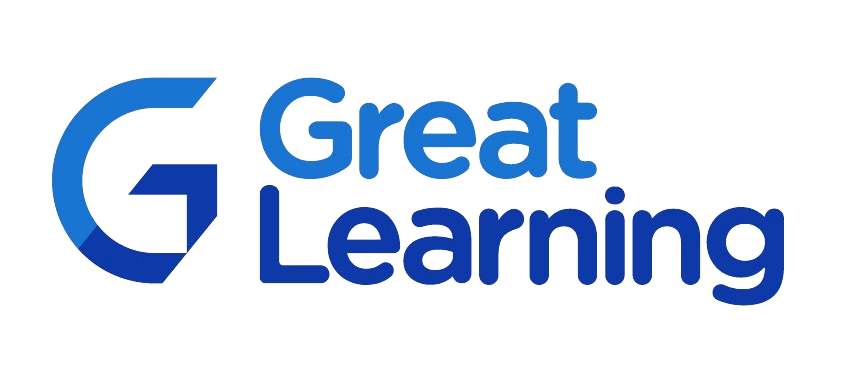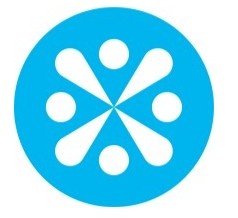Learn more about the course
Get details on syllabus, projects, tools, and more

Generative AI for Business with Microsoft Azure OpenAI
Master Gen AI for impactful career growth
Application closes 26th Feb 2026
What's new?
-

Code & no-code tracks
Tailor your learning experience with option to master Prompt Engineering either with or without coding. Dive deep into generative AI concepts in a way that suits your skill level and goals.
-

Microsoft Azure tools
Get hands-on experience with Azure Lab resources, including OpenAI Studio, Azure AI Studio, and Promptflow.
Program Outcomes
Become a GenAI-enabled Business Leader
Empower your business with Generative AI to fuel innovation and accelerate growth.
-
Master tools like Azure OpenAI, enabling you to build and deploy AI-driven workflows
-
Tailor AI solutions for real-world challenges – build AI solutions using Python (coding track) or Azure Prompt Flow (no-code track)
-
Master responsible and ethical AI practices
-
Prepare for AI900 certification and professional growth
Key program highlights
Why choose the Gen AI program
-

Learn GenAI with Microsoft Azure
Gain practical skills with Azure OpenAI Studio, Azure AI Studio, and Promptflow
-

Microsoft and Great Learning Certificate
Earn a prestigious certificate of completion and showcase your expertise to your professional network
-

Industry-relevant curriculum
Code and NoCode Track: Choose to learn Prompt Engineering with or without code
-

AI900 training by Microsoft certified trainers (optional)
Prepare for the Microsoft Azure AI Fundamentals (AI900) exam with training and credentials to elevate your professional profile
-

Real-world applications and projects
Work on 10 case studies and 3 hands-on projects to apply your knowledge to diverse challenges across industries
-

Expert mentorship and personalized support
Get AI expert guidance, 1:1 support, weekly concept sessions, and dedicated program manager assistance for your projects
Skills you will learn
Prompt Engineering
Classification Tasks with GenAI
Building AI Agents
Content Generation and Summarization
Using OpenAI APIs
Using Python SDK for Prompt Engineering
Microsoft Azure Cloud Services for AI
Retrieval-Augmented Generation (RAG)
Responsible AI
Prompt Engineering
Classification Tasks with GenAI
Building AI Agents
Content Generation and Summarization
Using OpenAI APIs
Using Python SDK for Prompt Engineering
Microsoft Azure Cloud Services for AI
Retrieval-Augmented Generation (RAG)
Responsible AI
view more
Secure top Gen AI jobs
-
43%
Annual Growth by 2030
-
15%
AI Impact on Global GDP by 2035
-
7.8 Hrs
saved using GenAI in business
Our alumni work at top companies
- Overview
- Why GL
- Learning Journey
- Curriculum
- Projects
- Tools
- Certificate
- Faculty
- Career support
- Fees
- FAQ

This GenAI program is ideal for
The Generative AI for Business with Microsoft Azure OpenAI empowers you to acquire the skills to drive innovation, build AI solutions, and create lasting business impact.
-
Business Leaders and Decision-makers
C-suite executives, senior leaders, and strategic decision-makers eager to harness AI for innovation.
-
Senior Managers and IT Consultants
Senior Managers and professionals in IT, healthcare, and finance aiming to leverage AI for operational excellence.
-
Entrepreneurs and Product Innovators
Startup founders, business owners, and product managers ready to develop AI-driven workflows and prototypes efficiently.
-
Professionals aiming for career growth
Lead impactful AI projects, mastering scoping, management, and cross-functional collaboration to drive innovation and create stakeholder value.
Experience a unique learning journey
Our pedagogy is designed to ensure career growth and transformation
-
Learn with self-paced videos
Learn critical concepts from video lectures by faculty & industry experts
-
Engage with your mentors
Clarify your doubts and gain practical skills during the weekend mentorship sessions
-
Work on hands-on projects
Work on projects to apply the concepts & tools learnt in the module
-
Get personalized assistance
Our dedicated program managers will support you whenever you need
Curriculum
This program follows a structured, hands-on learning journey designed to help professionals build, deploy, and operationalize Generative and Agentic AI using the Microsoft Azure OpenAI ecosystem. Learners begin with foundational concepts in Generative AI, Large Language Models (LLMs), and prompt engineering, along with an introduction to Azure’s enterprise AI platform. From Week 3 onwards, learners can choose between a Coding Track or a No-Code Track, depending on their preferred learning style. Both tracks cover the same learning outcomes, with coding-track learners building solutions using Python and Azure APIs, while no-code learners design workflows using Azure PromptFlow and Azure AI services. As the program progresses, learners work on real-world projects covering Retrieval-Augmented Generation (RAG), agentic systems, deployment, and LLMOps, gaining hands-on experience in building scalable, production-ready AI applications. The program also includes complimentary preparation for the Microsoft AI-900 Certification, ensuring learners are ready to validate their skills with an industry-recognized credential.
Pre-work
- Pre-work-01: AI with Azure - Introduction
- Pre-work-02: AI with Azure - Semantic Search Case Study
Course-01: Leveraging Generative AI for Business Applications
Week 01: Strategic AI Adoption: Navigating the GenAI & Agentic Landscape
Outcome: This week will help you understand the current business landscape of Generative and Agentic AI, while equipping you to identify key industry trends, opportunities, and challenges in their adoption.
Topics Covered:
- Overview of Generative AI: Definition, evolution, and impact on various industries.
- Overview of Agentic AI: Definition, characteristics, and potential applications.
- Market trends and business opportunities in GenAI and Agentic AI.
- Case studies of successful GenAI and Agentic AI implementations across different sectors
- Sample Case Study: Understand the architecture of Real time grammar/spelling correction tool and how Generative AI enhance performance of tool,
Week 02: Driving Business Value with Effective Prompting
Topics Covered:
- Prompt Engineering Basics: Principles and best practices
- Text Prompts: Techniques for generation, summarization, and conversation
- Speech Prompts: Using Azure AI for speech-to-text and text-to-speech
- Image Prompts: Guiding image generation and manipulation
- Advanced Techniques: Zero-shot, Few-shot, Chain/Tree-of-thought, self-consistency, Rephrase & Respond
Sample Case Study: Use Prompt engineering for customer support, personalize marketing, and create interactive product visuals
Week 03: Python for Prompt Engineering /Introduction to Azure Prompt Flow
Outcome: This week, you will learn to develop Python scripts for interacting with Azure OpenAI and handling text data (Coding Track), as well as use Azure PromptFlow to design, test prompt-based applications without extensive coding (No-Code Track)
Topics Covered:
Coding Track:
- Text in Python: Strings, common string methods
- File Handling: Reading/writing files, working with .txt, .csv, .json
- Text Manipulation & Cleaning: Advanced string operations (find/replace, extract, split/join), removing unwanted characters, handling dates and numbers in text
No-Code Track:
- Promptflow Basics: Introduction, key features, setup, and integration
- Navigation & Workflows: Exploring the interface and building basic workflows
Sample Case Study: Cleaning and Analyzing Survey Responses at HealthTrack
Week 04: Leveraging LLMs for Business Intelligence & Automation
Topics Covered:
- Explore business use cases for text classification and implement LLM-based classification workflows.
- Evaluate sentiment and aspect-based classification using accuracy metrics.
- Understand business applications of text generation and implement LLM-driven text-to-text workflows.
- Assess text generation outputs using ROUGE, BERTScore, and LLM-based evaluation.
Sample Case Study: Generate automated summary reports and personalized product recommendations for customers
Week 05: Project-1 (Sample Business Problem)
Week 06: Learning Break
Course-02: Building Intelligent Systems with RAG & Agents
Week 07: Enhancing AI solutions with Retrieval Augmented Generation
Outcome: This week, you will learn to enhance AI solutions using embeddings, vector databases, and LLMs to build efficient Retrieval-Augmented Generation (RAG) systems for effective question answering.
Topics Covered:
- Explore business use-cases for RAG
- Build RAG workflows using LLMs
- Learn embeddings and how to choose embedding models
- Overview of vector databases
- Manage vector databases (CRUD operations)
- Implement RAG for question answering
Sample Case Study: Automating Financial Report Generation at FinInsight using RAG
Week 08: Advanced RAG for Business Applications & Performance Evaluation
Outcome: This week, you will learn to implement Retrieval-Augmented Generation (RAG) for multimodal inputs, evaluate RAG model outputs, and mastering advanced techniques to improve the quality and performance of RAG systems in business applications.
Topics Covered:
- RAG with multimodal data sources (data with text, images and tables)
- Evaluating RAG outputs (Ragas and RAG Triad)
- Advanced Retrieval Mechanisms ( Hypothetical Questions, Query Expansion)
- Advanced Generation Mechanisms (Reranking, Information Compression)
Sample Case Study: Enhancing Patient Data Insights at MedCare using Advanced RAG
Week 09: Deploying a Generative AI-powered App
Outcome: In this week, you'll learn to deploy and serve Large Language Models, optimizing them for real-world use. You'll also gain a thorough understanding of the end-to-end AI application workflow, covering prompt engineering, building interfaces with Streamlit, containerizing with Docker, and hosting models.
Topics Covered:
- Master the deployment, management, and serving of Large Language Models (LLMs)
- Gain expertise in configuring and optimizing models for high-volume, high-performance tasks
- Use Streamlit to design user-friendly interfaces for AI applications
- Learn to Dockerize applications for seamless containerization and deployment
Sample Case Study: RAG Model Deployment for E-commerce Product Description Generation
Week 10: Automating Tasks with Agentic Systems
Outcome: This week covers the key differences between AI agents and LLM assistants, the evolution and use cases of generative AI agents, and the core functional modules of AI agent architecture. You will learn agentic design patterns, explore single-agent systems, and gain hands-on experience in designing and building simple autonomous AI agents.
Topics Covered:
- Generative AI Agents: Definition, use cases, and LLM vs. agent workflows.
- LLM Workflows with LangGraph/CrewAI: Sequential, parallel, and conditional workflows.
- AI Agent Architecture: Key components - planning, reasoning, execution, and memory.
- Types of Agents: Reflex, model-based reflex, goal-based agents.
- Agent Building: Python (LangChain with Azure) and no-code (Azure AI Agent Service).
Sample Case Study: Generative AI Agent for Automated Lead Generation and Customer Engagement
Week 11: Project-2 (Sample Business Problem)
This project involves deploying a Generative AI Agent to automate customer support for an e-commerce platform. The AI will handle common queries, process return requests, and provide personalized recommendations. It covers the deployment, optimization, containerization, and UI design of a high-performance support agent capable of managing high volumes of customer interactions
Week 12: Learning Break
Course-03: Operational Excellence with LLMOps
Week 13: Foundations of LLMOps
Topics Covered:
- Introduction to MLOps and LLMOps: Differences and similarities.
- LLM lifecycle: Experimentation, training, deployment, monitoring.
- Model versioning and registry in Azure Machine Learning.
- Deployment of LLMs as endpoints (Coding Track) and through PromptFlow (No-Code Track).
Sample Case Study: Automating Healthcare Documentation with LLMOps at HealthDocs
Week 14: LLMOps: Monitoring, CI/CD & Governance
Topics Covered:
- Monitor LLM performance: Latency, throughput, accuracy.
- Logging and observability for LLMs in Azure.
- CI/CD pipelines for LLMs (Coding Track) and automated deployments with PromptFlow (No-Code Track).
- Security best practices for LLM deployments on Azure.
Sample Case Study: Optimizing LLM Deployment and Monitoring at FinTech AI
Week 15: Project-3 (Sample Business Problem)
Course-04: Masterclass
Week 16: Masterclass - MCP
In this masterclass, you'll learn to overcome standalone model limitations by incorporating external context, understand the MCP architecture (Host-Client-Server) and its components, and explore benefits like enhanced accuracy and real-world use cases, all through practical, hands-on exercises.
Work on hands-on projects and case studies
Dive into exciting projects to sharpen your skills and build a standout portfolio!
-
3
Hands-on projects
-
10
Case studies
-
8
Lab sessions
Description
Design a Generative AI–powered review intelligence system that analyzes large volumes of customer feedback to extract feature-level insights and granular sentiment. Using Azure OpenAI and retrieval techniques, the solution helps businesses understand how specific product features perform and guides data-driven product and roadmap decisions.
Skills you will learn
- Information Retrieval
- Feature-Level Sentiment Analysis
- Text-to-Text & Text-to-Label Tasks
- Prompt Engineering
- Azure OpenAI APIs
- Embeddings & Semantic Search
- Python / Azure PromptFlow (Code & No-Code Tracks)
Description
Build and deploy a Generative AI–powered customer support agent that autonomously handles customer queries, return requests, and product recommendations at scale. The project covers agent design, workflow orchestration, deployment, and UI integration using Azure’s agentic AI ecosystem for a production-ready solution.
Skills you will learn
- Agentic AI System Design
- AI Agent Architecture (Planning, Reasoning, Execution, Memory)
- Azure AI Agent Service / LangChain & LangGraph
- Workflow Orchestration
- Containerization with Docker
- Deployment on Azure App Services
- UI Integration with Streamlit
- Performance Optimization for LLM Applications
Description
Implement LLMOps best practices to manage and scale Generative AI models for marketing content creation. The project focuses on model lifecycle management, monitoring, CI/CD pipelines, quality evaluation, and governance to ensure reliable, secure, and scalable AI-driven content operations.
Skills you will learn
- LLMOps Fundamentals
- Model Versioning & Lifecycle Management
- Monitoring & Logging for LLMs
- CI/CD Pipelines for AI Applications
- Quality Evaluation of Generative Outputs
- Governance & Security in Azure
- Azure Machine Learning & PromptFlow
Learn top in-demand Generative AI tools
Gain hands-on experience with cutting-edge tools and explore the vast capabilities of Generative AI
Earn a Certificate from Microsoft Azure
Enhance your resume with a certificate in Generative AI for Business with Microsoft Azure OpenAI from Great Learning and Microsoft Azure and share it with your professional network.
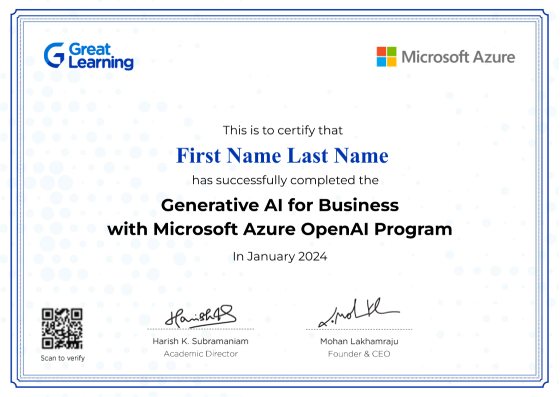
* Image for illustration only. Certificate subject to change.
Meet your faculty
Meet our expert faculty with in-depth Data Science & AI knowledge and a passion to help you succeed
Get industry ready with dedicated career support
-
Career prep session
Apply the program skills for professional advancement
-
E-portfolio
Create a professional portfolio demonstrating skills and expertise
Course fees
The course fee is USD 1,700
Invest in your career
-

Gain practical expertise in Generative AI to drive business innovation.
-

Prepare for AI900 Certification (Optional)
-

Build impactful AI-driven solutions to fuel organizational growth.
-

Lead and collaborate on cross-functional AI projects with confidence.
Third Party Credit Facilitators
Check out different payment options with third party credit facility providers
*Subject to third party credit facility provider approval based on applicable regions & eligibility
Admission Process
Admissions close once the required number of participants enroll. Apply early to secure your spot
-

1. Fill application form
Apply by filling a simple online application form.
-

2. Interview Process
Go through a screening call with the Admission Director’s office.
-

3. Join program
Selected candidates will receive an offer letter. Secure your seat by paying the admission fee.
Course Eligibility
- Applicants should have a Bachelor's degree with a minimum of 50% aggregate marks or equivalent
Batch start date
-
Online · To be announced
Admissions Open
Frequently asked questions
What is the Generative AI for Business with Microsoft Azure OpenAI program?
You will learn to build GenAI solutions using both code and no-code approaches on the Microsoft Azure platform, working with tools such as Azure OpenAI Studio, Azure AI Studio, and Python SDKs. Learners can choose between a Coding Track (Python and Azure APIs) and a No-Code Track (Azure PromptFlow and visual workflows). Both tracks are designed to deliver the same learning outcomes. The learning experience includes structured modules, hands-on case studies, and projects that help you apply Generative AI across business functions.
The program also offers an optional elective track to prepare for the Microsoft AI-900: Azure AI Fundamentals certification.
What are the highlights of this Generative AI course?
- Learn GenAI with Microsoft Azure: Build practical skills using Azure OpenAI Studio, Azure AI Studio, and Azure Prompt Flow through both code and no-code tracks.
- Code and No-Code learning tracks: Choose to learn prompt engineering and GenAI solution design with or without programming, starting from Week 3 of the program.
- Business-focused curriculum: Learn essential concepts such as prompt engineering, text classification, summarization, Retrieval-Augmented Generation (RAG), agentic systems, LLMOps, and responsible AI.
- Hands-on learning experience: Work on 10 real-world case studies and 3 hands-on projects that reflect practical business challenges across industries.
- Optional AI-900 preparation: Enroll in a certification-focused learning track to prepare for the Microsoft Azure AI Fundamentals (AI-900) certification, with sessions led by Microsoft-certified trainers.
- Certificate of Completion: Earn a co-branded certificate from Great Learning and Microsoft Azure upon successful completion of the program.
What tools will I learn to use in this AI for business program?
- Azure AI Foundry
- Models: Gpt-4 Series/ Gpt - 5 Series/ text-embedding-3 Series
- Azure PromptFlow
- Azure AI Search
- Azure AI Content Understanding
- Azure App Services
- Azure Agent Factory
- Azure AI Vision
These tools will help you design, deploy, and operationalize end-to-end Generative and Agentic AI solutions for business needs.
What is the duration of the program?
Will I receive a certificate after completing the program?
What are the learning outcomes of this program?
Design and Deploy Generative AI Solutions
Build real-world GenAI workflows using Microsoft Azure OpenAI tools across both code and no-code environments, tailored to business needs.
Master Prompt Engineering for Business Applications
Use effective prompt design techniques, from zero-shot to chain-of-thought prompting, to solve tasks like summarization, sentiment analysis, classification, and content generation.
Apply GenAI Across Text, Speech, and Visual Data
Work with multimodal AI tools to build solutions that understand and generate text, audio, and images.
Implement RAG and Enterprise-Grade Workflows
Use Azure PromptFlow and Azure AI Search to build Retrieval-Augmented Generation (RAG) systems that integrate proprietary business data with LLMs.
Design Agentic AI Systems
Build and deploy autonomous AI agents using agentic design patterns, Azure AI Agent Service, and LangChain-based workflows.
Operationalize AI with LLMOps
Manage the full lifecycle of LLMs, including deployment, monitoring, CI/CD pipelines, governance, and security on Azure.
Follow Responsible and Ethical AI Practices
Understand risk mitigation, bias handling, prompt injection prevention, and privacy protection to deploy GenAI responsibly in enterprise contexts.
Prepare for Microsoft AI-900 Certification
Optionally complete a dedicated certification-focused module to strengthen your foundations in Azure AI and prepare for the AI-900 exam.
Showcase Your Skills with Real-world Projects
Work on 10 case studies and 3 hands-on projects demonstrating your ability to apply Generative AI, Agentic AI, and LLMOps to real business challenges. Build a robust e-portfolio to showcase your skills.
Do I need prior programming experience to learn Generative AI?
Is the AI-900 certification part of this Azure OpenAI program?
What skills will I acquire in this Azure OpenAI course?
By completing this Microsoft Azure OpenAI course, you will develop skills in:
- Prompt engineering for business applications
- Text classification, summarization, and content generation using LLMs
- Building and deploying Generative AI workflows
- Retrieval-Augmented Generation (RAG)
- Designing and working with AI agents
- Responsible AI principles and risk mitigation
- Using Azure OpenAI services and Python SDKs
- Working with Azure AI tools across code and no-code environments
Who is this program for?
This Microsoft Generative AI certificate program is ideal for:
- Mid and senior-level professionals in IT roles looking to lead Generative AI adoption, architecture, and enterprise integration
- Technology decision-makers responsible for major outcomes such as building internal CoEs, client-facing GenAI solutions, or scalable AI infrastructure
- Leaders from BFSI, manufacturing, pharma, consulting, and other industries seeking to drive innovation and ROI through GenAI
- Business heads and functional leaders aiming to guide GenAI adoption in their teams without necessarily writing code
- Professionals preparing for future leadership roles, such as CTO, CDO, or Innovation Heads, where GenAI will be a key strategic lever
What is the structure of the curriculum?
Pre-work: Introduces Azure AI fundamentals and applied GenAI concepts.
Course 01: Leveraging Generative AI for Business Applications
Covers Generative AI fundamentals, prompt engineering, and business use cases.
Course 02: Building Intelligent Systems with RAG & Agents
Focuses on embeddings, vector databases, Retrieval-Augmented Generation, deployment, and agentic AI systems.
Course 03: Operational Excellence with LLMOps
Covers monitoring, CI/CD pipelines, governance, and scaling GenAI applications in enterprise environments.
Course 04 (Masterclass):
Explores emerging architectures, advanced GenAI concepts, and cutting-edge industry practices.
Throughout the program, learners work on 10 case studies and 3 hands-on projects, with the flexibility to choose between coding and no-code tracks.
Are there hands-on projects in the Generative AI course?
These projects cover:
- Feature-level customer review intelligence
- Autonomous AI-powered customer support agents
- LLMOps for scalable marketing and content systems
The projects help you build a practical portfolio that demonstrates your ability to design, deploy, and operationalize Generative AI solutions for business use cases.
What are the admission requirements?
Admissions close once the required number of participants enroll. Apply early to secure your spot.
1. Fill application form
Apply by filling a simple online application form.
2. Interview Process
Go through a screening call with the Admission Director’s office.
3. Join program
Selected candidates will receive an offer letter. Secure your seat by paying the admission fee.
What is the Microsoft Azure OpenAI program fee?
The fee for the Generative AI for Business with Microsoft Azure OpenAI program is ₹1,20,000 + GST. Flexible payment options are available, including EMI plans.
Are there any scholarships or financial assistance available?
No formal scholarships are listed as part of the program. However, flexible payment options are available, including EMI plans that let you spread the fee over time. In some cases, you may also explore third-party financing or loan options to support your fee payments, subject to eligibility and approval by the provider.
Does the Microsoft Generative AI course offer placement assistance?
Is the program suitable for someone without a coding background?
How will this program help in implementing AI in my team or organization?
The program will provide you with the tools, frameworks, and best practices to lead AI adoption in your organization. You will learn how to design, build, and deploy Generative AI solutions using Azure tools, and gain insights on how to integrate these solutions into existing business workflows.
What career opportunities will this program open up?
This program helps professionals build practical Generative AI capabilities that can be applied across a wide range of roles and industries. The skills learned are relevant for professionals involved in AI strategy, solution design, business intelligence, product development, and enterprise AI adoption.
How can I showcase my skills after completing the Microsoft Generative AI course?
After completing the Microsoft Generative AI course, you can showcase your skills by:
- Building Real-World Solutions: Work on 10+ case studies and 3 hands-on projects to demonstrate your ability to apply Generative AI in business contexts.
- Creating a Portfolio: Compile your projects and case studies into a professional e-portfolio to showcase your practical experience.
- Earning a Certificate: Share your co-branded certificate from Great Learning and Microsoft Azure to validate your expertise in Generative AI.
- Demonstrating Key Skills: Highlight your ability to design and deploy GenAI solutions, use prompt engineering, and apply AI to text, speech, and image data.
What is the difference between Generative AI and Agentic AI?
Generative AI focuses on creating content across multiple modalities (text, image, speech) using models like GPT and DALL·E. Agentic AI, on the other hand, refers to AI systems that can perform tasks autonomously and make decisions based on reasoning and action plans.
Can I take the program if I have no prior experience in AI?
Yes, the program is suitable for professionals who are new to Generative AI. The Microsoft Generative AI course is designed with dual learning tracks (coding and no-code), allowing you to learn either with or without coding experience. However, having some basic understanding of AI concepts would be beneficial. The pre-work modules will help you get up to speed.
Yes, you can take the program even if you have no prior experience in AI.
How will I learn to apply Generative AI in business?
The program includes real-world business case studies and hands-on projects. You will learn how to apply Generative AI to solve challenges in areas such as marketing, customer service, and product design.
Can I attend the program while working full-time?
Yes, the program is designed to be flexible and suitable for working professionals. It includes live sessions, recorded lectures, and hands-on assignments that you can complete at your own pace.
What are some practical business use cases for Generative AI?
Generative AI can be applied across various industries for:
- Marketing: Personalizing advertisements, creating content, and enhancing customer engagement.
- Customer Service: Automating responses in chatbots or virtual assistants, providing 24/7 support.
- Product Design: Generating innovative ideas, product mockups, or prototypes based on data and trends.
- Healthcare: Analyzing patient data for insights, generating summaries of medical records, and predicting health trends.
What is LLMOps, and how does it fit into the deployment of Generative AI?
LLMOps (Large Language Model Operations) refers to the practices involved in managing the lifecycle of large language models, including deployment, monitoring, versioning, and governance. The program introduces LLMOps concepts to help learners understand how Generative AI solutions are maintained, monitored, and scaled effectively in enterprise environments.
Batch Profile
The PGP-Data Science class consists of working professionals from excellent organizations and backgrounds maintaining an impressive diversity across work experience, roles and industries.
Batch Industry Diversity

Batch Work Experience Distribution
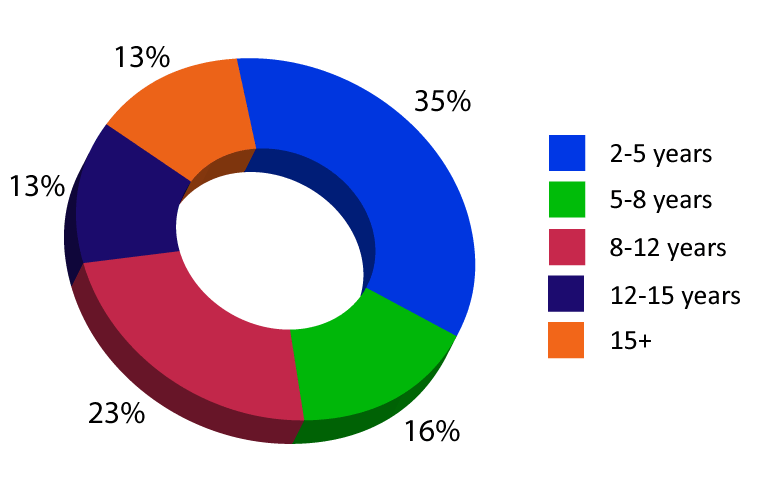
Batch Education Diversity
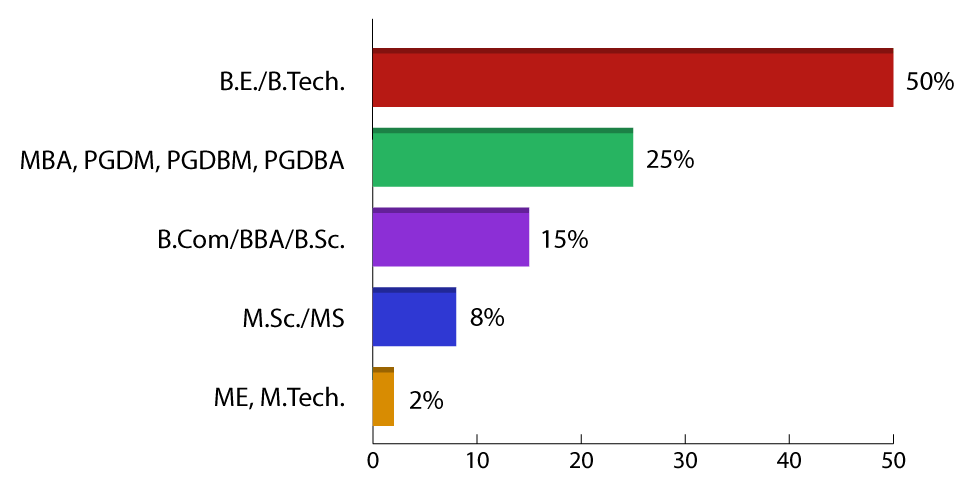
The PGP-Data Science learners come from some of the leading organizations.
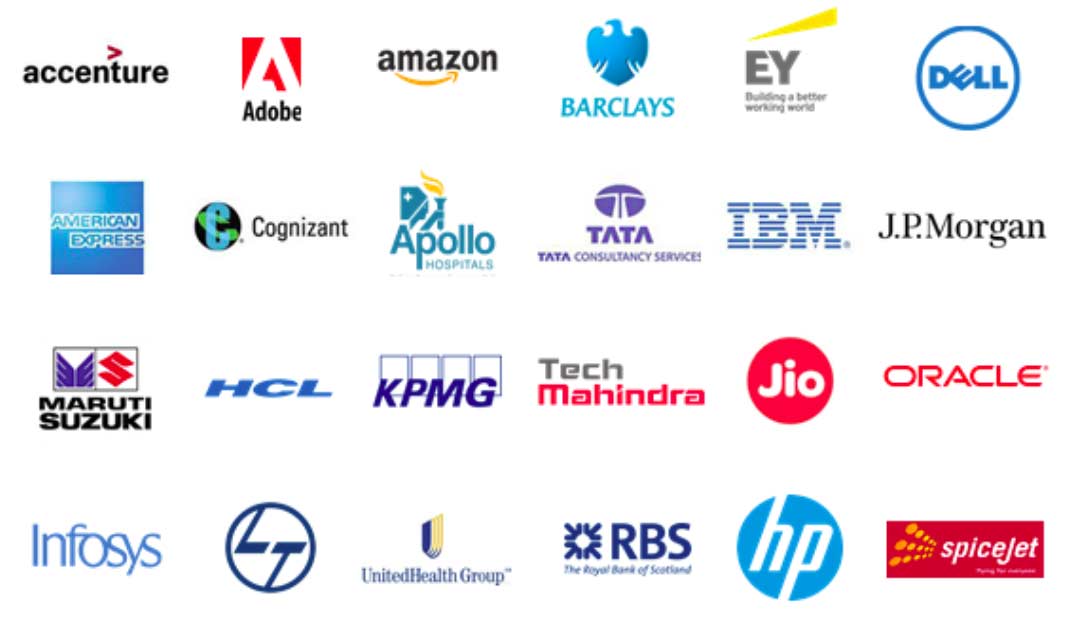
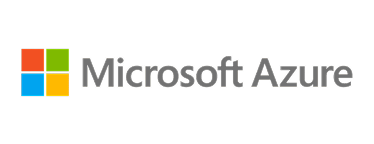


 Speak with our expert
Speak with our expert













